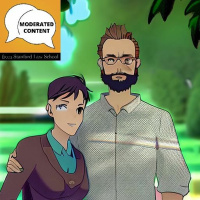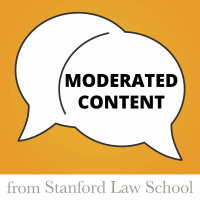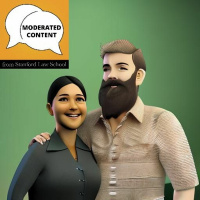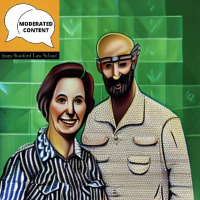Stanford Radio
- Author: Vários
- Narrator: Vários
- Publisher: Podcast
- Duration: 245:56:46
- More information
Informações:
Synopsis
Podcast by Stanford Radio
Episodes
-
Best of: How do we educate a new kind of engineer?
06/10/2023 Duration: 28minA perspective on the need for diversity and empathy in the engineering profession. As we enter a new academic year, it’s an opportune time to think about how we’re educating the next generation of engineers. Russ's conversation in 2020 with Sheri Sheppard, an emeritus professor of mechanical engineering and founder of the Designing Education Lab at Stanford, sheds light on this important topic. Professor Sheppard shares about ways that will help us educate engineers who not only are technically trained but also bring empathy into their work.
-
The future of coastal erosion
05/10/2023 Duration: 29minGuest Jane Willenbring is a geoscientist who studies accelerating coastal erosion. The challenge lies not in understanding why coasts are receding today, but in determining what they looked like a thousand years ago to know how much they’ve changed — a secret revealed in coastal rocks through isotopes shaped by cosmic radiation. But measurement is only one part of the equation, she says. We must now think about erosion’s impact on humans, Willenbring tells host Russ Altman on this episode of Stanford Engineering’s The Future of Everything podcast.
-
The future of the gut microbiome
05/10/2023 Duration: 31minGuest KC Huang is many things: A bioengineer. A microbiologist. An inventor. But mostly he’s an expert on the ecology of the human gut. He and his collaborators have developed a device that can sample bacterial DNA and create a living map of the gut microbiome from mouth to … ah, well … you know. Every step of the way, he says, we play host to trillions of guests we know very little about. It’s time we got to know them, Huang tells host Russ Altman on this episode of Stanford Engineering’s The Future of Everything podcast.
-
The future of quantum mechanics: Unraveling entanglement's secrets
05/10/2023 Duration: 33minGuest Monika Schleier-Smith is a physicist who says that quantum principles, like entanglement, can make atoms do funny things, such as allowing two atoms to share secrets across great distances. While entanglement opens tantalizing possibilities like quantum computing, there’s still much we don’t know about quantum mechanics. She now uses lasers to “cool” atoms to near motionlessness as a starting point for controlling and proving entanglement, as she tells host Russ Altman on this episode of Stanford Engineering’s The Future of Everything podcast.
-
MC LIVE 9/28
02/10/2023 Duration: 01h26sAlex and Evelyn record an episode in front of probably their entire active listener base. They talk about an update on SIO's investigations into child sexual abuse material on platforms; the fight for free speech in India; the poor outlook for election integrity at X in 2024, and what this might mean for other platforms; platform transparency mandates with Daphne Keller; and challenges to age verification laws with Alison Boden, the Executive Director of the Free Speech Coalition.
-
MC Weekly Update 9/19: The Lawyers Always Win
20/09/2023 Duration: 37minAlex and Evelyn discuss reporting on a proposed deal between TikTok and the US government for it to continue to operate in the country, and the broader geopolitical context of US-China relations; how to think about search-term blocking; YouTube preventing Russell Brand from monetizing his videos on its platform; the Musk stories from the week that matter; and the enjoining of the California Age Appropriate Design Code by a California judge.
-
The 5th Circuit's Jawboning Ruling
12/09/2023 Duration: 49minEvelyn sits down with Genevieve Lakier, a Professor at University of Chicago Law School, to discuss the 5th Circuit Court of Appeals ruling in Missouri v. Biden, narrowing but affirming a district court injunction prohibiting large parts of the federal government from communicating with platforms about content moderation.
-
The future of Muslim mental health
08/09/2023 Duration: 28minGuest Rania Awaad is a psychiatrist who studies mental health in the U.S. Muslim community. There are promising approaches, like talk therapy derived in historic Muslim settings, that can also apply to other faith communities. The deeper lesson, she says, has been that Muslim approaches are in line with mainstream ideas of holistic health and healing. Like others, Muslims believe you can’t be physically well if you’re not mentally well, Awaad tells host Russ Altman in this episode of Stanford Engineering’s The Future of Everything podcast.
-
MC "Weekly" Update 9/6: We will not be silenced!
06/09/2023 Duration: 53minAlex and Evelyn discuss a bunch of things that happened while they were on "summer break": OpenAI recommending using GPT-4 for content moderation, but not enforcing its own political content moderation rules for ChatGPT; the EU's Digital Services Act coming into force and a report from the Commission that has us worried; Meta rejecting its Oversight Board's recommendation to suspend Hun Sen's account; a bunch of First Amendment decisions; and much more!
-
The future of science education: Cultivating critical thinkers
01/09/2023 Duration: 31minBad science is a big problem for society, says guest Jonathan Osborne, an expert in science education, but we don’t have to surrender to it. Beating bad science requires young people to learn three skills, Osborne says. First is an ability to size up conflicts of interest. Second, to evaluate a source’s qualifications. And third, to more rigorously question those who go against consensus. The whole goal of science is consensus, Osborne tells host Russ Altman on this episode of Stanford Engineering’s The Future of Everything podcast.
-
Best of - AI and safety critical systems
18/08/2023 Duration: 27minToday we're rerunning a conversation Russ had in 2020 with Mykel Kochenderfer, a professor of Aeronautics and Astronautics at Stanford University. Mykel's research has impacted anyone who has been on a plane recently for any kind of travel. His research led to the creation of a program known as the Airborne Collision Avoidance System, or ACAS X , which as he explains in more detail, is a critical tool in keeping air travel safe. Thank you for tuning in, and we hope you enjoy this episode from the archives.
-
The future of longevity
11/08/2023 Duration: 30minGuest David Rehkopf is an expert in population health who says that where we live is one of the strongest influences on how long we live. While we know diet and health care are important, it has been tough to tease out what about these places allows people to live longer and healthier lives. By examining environmentally induced changes in DNA, we may be able to more quickly and more accurately quantify what aspects of environments promote longer, healthier lives, Rehkopf tells host Russ Altman in this episode of Stanford Engineering’s The Future of Everything podcast.
-
MC Weekly Update 8/8: 11 Dimensional Free Speech Theory
08/08/2023 Duration: 38minAlex and Evelyn discuss Ex-Twitter's latest examples of "free speech absolutism"; Apple removing an independent Russian media outlet's podcast from its podcast app; the Cambodian Prime Minister's return to Facebook; TikTok's new For EU measures; skyrocketing demand for Perspective API to moderate LLM hate speech; the reasons the dismissal of a First Amendment challenge to Utah's age verification law is so scary; and your weekly dose of random sports news.
-
MC Weekly Update 7/31: It's Complicated
01/08/2023 Duration: 47minAlex and Evelyn discuss some of the week's headlines, including Ex-Twitter's continued trust and safety, er, best practices and a baseless threat to try shutdown research it doesn't like, before being joined by Josh Tucker and Jen Pan, two academics part of a research partnership with Meta to examine the impact of Facebook and Instagram on key political attitudes and behaviors during the US 2020 election. The group released the first four papers this week and Josh and Jen discussed their findings and what they mean for platform design.
-
MC Weekly Update: Why?
24/07/2023 Duration: 43minAlex and Evelyn discuss trust and safety challenges for federated social media, following a report from the Stanford Internet Observatory about child safety problems in the fediverse. Also: Bluesky's flailing, Tw-... X's rebrand, a First Amendment challenge to Texas' TikTok ban impeding academic research, and more.
-
MC Weekly Update: Hanging by a Thread
11/07/2023 Duration: 49minAlex and Evelyn discuss the very successful launch of Meta's Twitter competitor Threads, and the content moderation challenges ahead. Elon's taking it very well. Europe and the US reached a data sharing agreement -- Alex has thoughts. Scary rhetoric out of the EU about banning platforms makes Evelyn sad. A US Court upholds FOSTA.
-
Best of - How 3D printing is changing medicine
07/07/2023 Duration: 28minExplore the frontiers of 3D printing in healthcare and its potential to revolutionize personalized medicine, reshape prosthetics, and reimagine drug delivery systems. In this episode we're re-sharing a conversation Russ had in 2021 with Joseph DeSimone, a professor of chemical engineering at Stanford University. This one is about health, and Joe tells us how 3D printing is transforming healthcare. His group is using it to make vaccine delivery easier and more effective. They're also creating implantable chemotherapy that kills tumors, while having fewer side effects for the patients. We hope you enjoy this glimpse of how 3D printing technologies are being used in novel and unexpected ways.
-
The future of human vision
30/06/2023 Duration: 33minNeuroscientist Kalanit Grill-Spector studies the physiology of human vision and says that the ways computers and people see are in some ways similar, but in other ways quite different. In fact, she says, rapid advances in computational modeling, such as deep neural networks, applied to brain data and new imaging technologies, like quantitative MRI and diffusion MRI, are revolutionizing our understanding of how the human brain sees. We’re unraveling how the brain “computes” visual information, as Grill-Spector tells host Russ Altman on this episode of Stanford Engineering’s The Future of Everything podcast.
-
MC Weekly Update 6/27: Cage-free Eggheads (Are Men Okay?)
27/06/2023 Duration: 44minA lot to cover this week. Alex and Evelyn discuss AI-generated child sexual abuse imagery; the first draft of history on Telegram during the mutiny in Russia; Musk's meetings with Indian PM Modi and EU officials; link taxes causing Meta to stop serving news content in Canada; YouTube taking down an RFK Jr video; Meta buckling to government demands in Vietnam; and a disappointing Supreme Court decision about cyberstalking.
-
The future of trauma therapy
23/06/2023 Duration: 28minGuest Debra Kaysen is a psychologist specializing in treatment of post-traumatic stress disorder (PTSD) who says that promising new cognitive and behavioral therapies are, quite literally, giving people “their lives back.” These therapies work without drugs to help patients manage their disease and its symptoms and, perhaps, even cure PTSD. We’re providing tools to change how they think, Kaysen tells host Russ Altman on this episode of Stanford Engineering’s The Future of Everything podcast. For interested listeners, Kaysen offers a list of PTSD resources: Resources Previous TFoE episode with Shaili Jain on treatments for PTSD - https://engineering.stanford.edu/magazine/article/shaili-jain-treatments-ptsd-are-more-effective-ever https://istss.org/public-resources/trauma-basics https://istss.org/public-resources/find-a-clinician https://adaa.org/learn-from-us/from-the-experts/blog-posts/consumer/what-youre-feeling-ptsd-what-do-help Free apps from the VA for PTSD and other related concerns https://www.ptsd.



























